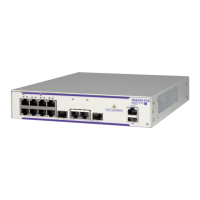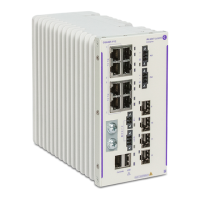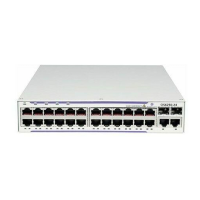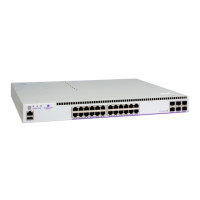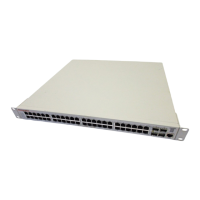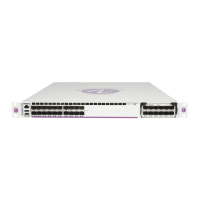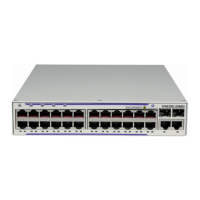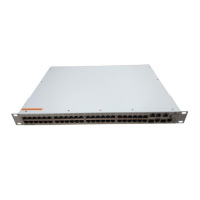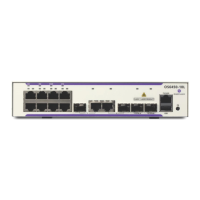Configuring BFD Configuring BFD
OmniSwitch AOS Release 8 Network Configuration Guide December 2017 page 20-31
VRRP BFD-STATUS : Enabled
Admin Adv.
VRID VLAN IPv6 Address(es) Status Priority Preempt Accept Interval
----+----+--------------------------+--------+--------+-------+------+--------
1 101 fe80::200:5eff:fe00:201 Enabled 200 No Yes 100
1010::30
2 102 fe80::200:5eff:fe00:202 Enabled 200 No Yes 100
1020::30
2 Once VRRP is registered with BFD at the protocol level, enable BFD for a particular VRRP address
tracking policy using the vrrp track command. Ensure that the track policy is associated with at least one
of the virtual routers. For example:
-> vrrp track 2 address 192.60.245.240 bfd-state enable
-> vrrp track 5 address fe80::200:5eff:fe00:202 bfd-state enable
The above commands enable BFD for an IPv4 and IPv6 address tracking policy (VRRP track number 2
and 5) to track remote interface address 192.60.245.240 and fe80::200:5eff:fe00:202.
Use the show vrrp track command to verify whether BFD is enabled for a particular track policy. For
example:
-> show vrrp track
Track Admin Oper BFD
ID Policy State State Pri Status
-----+---------------------------------------+----------+------+-----+---------
2 192.60.245.240 Enabled Up 25 Enabled
5 fe80::200:5eff:fe00:202 Enabled Up 25 Enabled
Use the show ip|ipv6 bfd interfaces command to verify the BFD interface/session configuration and
operation status.
Once the track policy is configured, the BFD session is established with the remote IPv4 or IPv6 address.
BFD session is also established with the BFD neighbors.
Use the show ip|ipv6 bfd sessions command to view BFD sessions with all BFD neighbors.
Configuring BFD Support for Static Routes
This section provides information about how to configure and verify BFD support for IPv4 and IPv6 static
routing.
To change the default BFD status for a particular static route and to enable BFD support, use the ip static-
route bfd-state or the ipv6 static-route bfd-state command. For example:
-> ip static-route 10.1.1.1 mask 255.0.0.0 gateway 10.1.1.25 bfd-state enable
Notes:
• The value of the address parameter should be a remote interface address. BFD cannot be configured for
a local interface address.
• Enabling BFD for an address tracking policy requires a Loopback0 interface on the local switch. The
IP address of this interface will serve as the source IP address of BFD packets. For more information
about configuring a Loopback0 interface, see the “IP Commands” or “IPv6 Commands” chapter in the
OmniSwitch AOS Release 8 CLI Reference Guide.
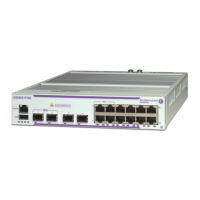
